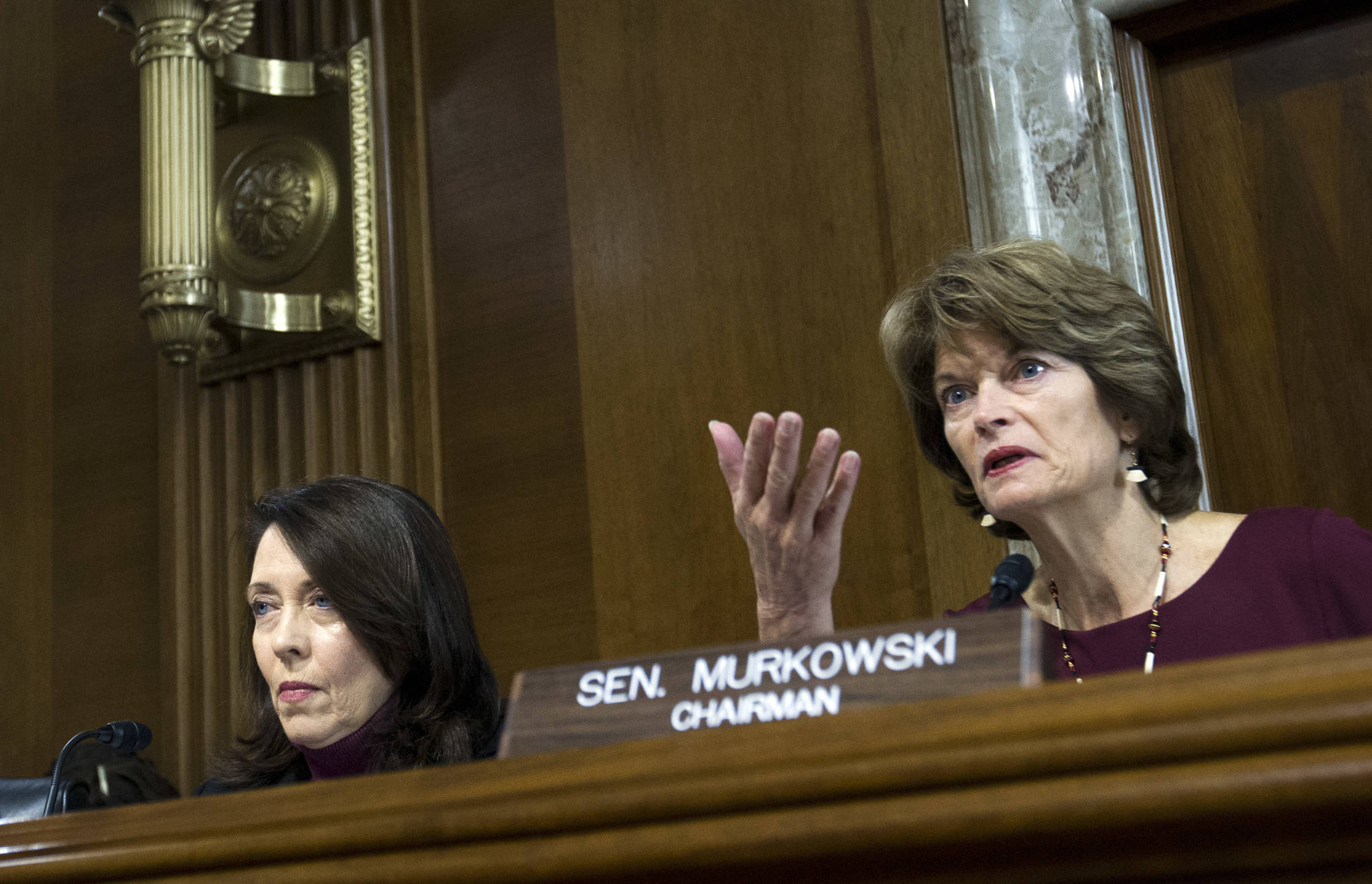WASHINGTON — Oil and gas drilling in Alaska’s Arctic National Wildlife Refuge moved closer Wednesday as a key Senate panel approved a bill to open the remote refuge to energy exploration.
The Senate Energy and Natural Resources Committee approved the drilling measure, 13-10. Democratic Sen. Joe Manchin of West Virginia joined 12 Republicans to back the bill.
Opening the remote refuge to oil and gas drilling is a longtime Republican priority that most Democrats fiercely oppose. The 19.6-million acre refuge in northeastern Alaska is one of the most pristine areas in the United States and is home to polar bears, caribou, migratory birds and other wildlife.
Sen. Lisa Murkowski, R-Alaska, said drilling can be done safely with new technology, while ensuring a steady energy supply for West Coast refineries. The measure would generate about $2 billion in royalties over the next decade, Murkowski said, with half the money going to her home state.
Murkowski, who chairs the Senate panel, said opening the refuge to drilling “will help keep energy affordable, saving families and businesses money every time they pay for fuel — essentially an energy tax cut.”
Democrats sharply disagreed.
“What a dramatic change this is,” said Sen. Maria Cantwell, D-Wash. “It turns this refuge into an oil field.”
The wildlife refuge has been the focus of a political fight for nearly four decades. President Bill Clinton vetoed a GOP plan to allow drilling in the refuge in 1995, and Democrats led by Cantwell defeated a similar GOP plan in 2005.
The Trump administration and congressional Republicans are pushing to revive the drilling plan as a way to help pay for proposed tax cuts promised by President Donald Trump. The GOP-approved budget includes $1 billion in revenue from drilling leases over 10 years.
Environmental groups and other critics call those projections wildly optimistic, saying low global oil prices and high exploration costs are likely to limit drilling revenue. Analysts say oil prices must be at least $70 a barrel to justify drilling. A benchmark for crude oil is about $56 a barrel.
The measure sponsored by Murkowski calls for at least two major lease sales over the next decade in at least 400,000 acres each in the refuge’s coastal plain. Surface development would be limited to 2,000 acres.
The bill requires at least a 16.67 percent royalty rate evenly split between the federal government and Alaska.
Murkowski hailed the committee vote as clearing a “significant hurdle” and said she was optimistic the plan could be approved as part of larger tax measure being considered in the House and Senate.
Cantwell said after the vote it was “a tragedy that Republicans will run over something so precious as the Arctic National Wildlife Refuge — land that has stood undisturbed for thousands of years — all for a giveaway to oil corporations that allows them to ignore important environmental protections.”
She and other Democrats said the GOP bill is especially unwise at a time when U.S. oil production is booming, with imports declining and exports reaching record levels.
If the Republican plan is approved, “we would be drilling in the Arctic Refuge in order to find more oil to export to other countries,” said Sen. Edward Markey, D-Mass. “We would spoil our own sacred land in order to help oil companies sell oil to China. That makes no sense.”
Jason McFarland, president of the International Association of Drilling Contractors, said the plan would help the U.S. achieve President Donald Trump’s goal of becoming “energy dominant” in the global market.
Opening a small portion of the refuge to drilling “represents an extraordinary opportunity to responsibly develop the vast resources that the area is believed to contain, allowing the country to develop more of its own natural resources and rely less on foreign oil,” he said.

